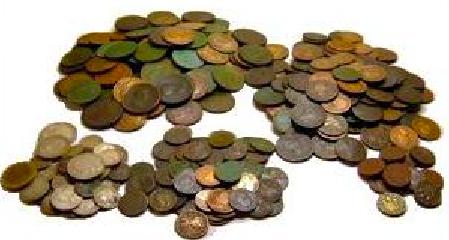Skip over navigation



Or search by topic
Number and algebra
Geometry and measure
Probability and statistics
Working mathematically
Advanced mathematics
For younger learners
Coins (1)
Age 5 to 7
Challenge Level 






Most countries have their own currency - coins and notes.
How many different values of coins do you have in your country?
Make a collection of all the different value coins that you have in your country.
Put two or three of each different coin in a bag, shake it up, put you hand in and take a a small number of coins.
What is the total value of those coins?
What could you buy with those coins?
Put the coins back and pass it on to someone else to do the same.
How many different values of coins do you have in your country?
Make a collection of all the different value coins that you have in your country.
Put two or three of each different coin in a bag, shake it up, put you hand in and take a a small number of coins.
What is the total value of those coins?
What could you buy with those coins?
Put the coins back and pass it on to someone else to do the same.
Photograph Acknowledgement
http://www.psdetecting.com/
http://www.psdetecting.com/
You may also like
The Puzzling Sweet Shop
There were chews for 2p, mini eggs for 3p, Chocko bars for 5p and lollypops for 7p in the sweet shop. What could each of the children buy with their money?
Money Bags
Ram divided 15 pennies among four small bags. He could then pay any sum of money from 1p to 15p without opening any bag. How many pennies did Ram put in each bag?

